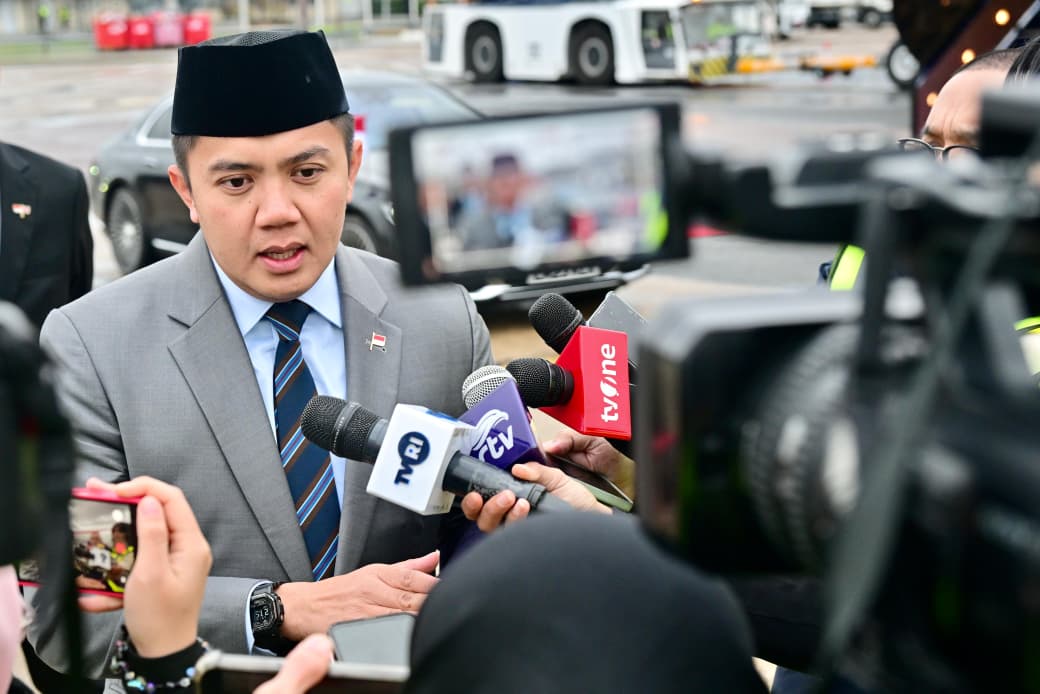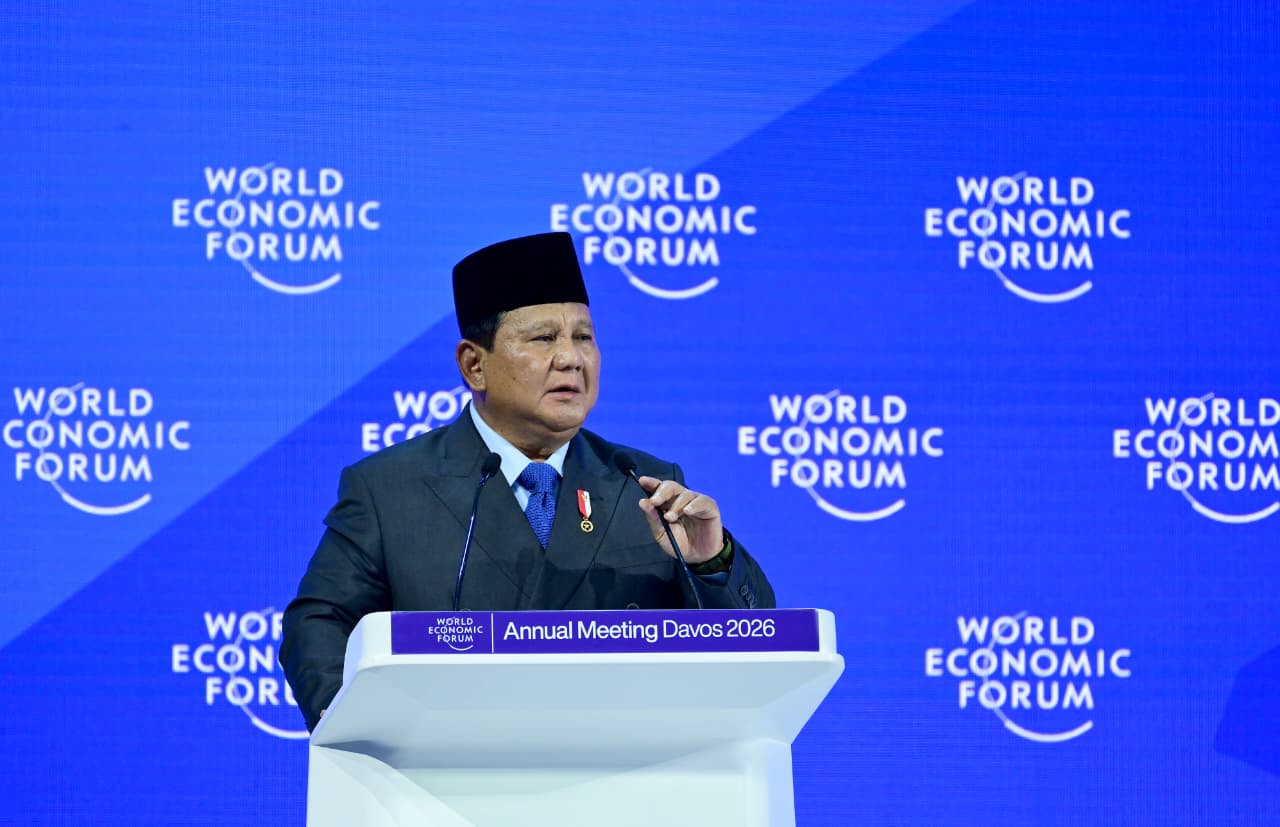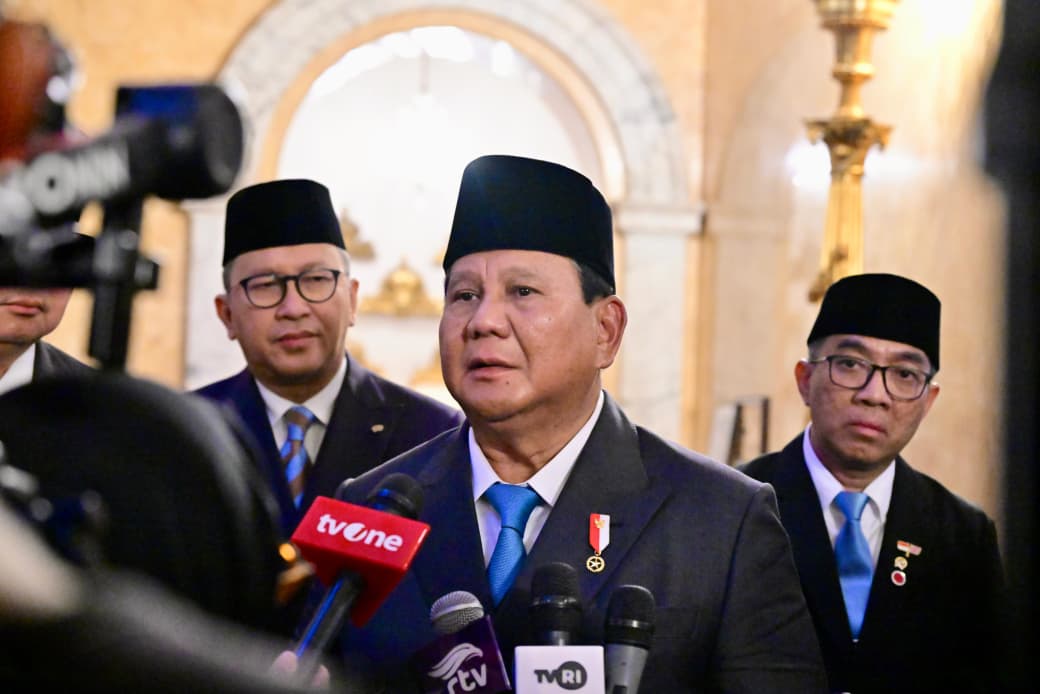Opening Statement by Dr. Susilo Bambang Yudhoyono, President RI, In Bali Democracy Forum VII, Bali Indonesia, 10-11 October 2014-10-10
Bismillahrirrahmanirrahim,
Assalamualaikum warahmatullahi wabarakatuh,
May peace be upon us all.
Om Swastiastu,
Your Majesty Sultan Hassanal Bolkiah Muizzadin Waddaulah, Sultan of Brunei Darussalam,
Your Excellency Benigno Simeon Aquino III, President of the Republic of the Philippines,
Your Excellency, Kay Rala Xanana Gusmao, Prime Minister of the Democratic Republic of Timor-Leste,
Your Excellency, Douglas Broderick, UN Residence Coordinator on behalf of UN Secretary General His Excellency Ban Ki-moon.
Distinguished Heads of Delegation,
Excellencies,
Ladies and Gentlemen,
First of all, on behalf of the Government and the people of Indonesia, I am pleased to extend a warm welcome to all of you to the beautiful island of Bali. Your continuous and active participation in this Forum reflects your enduring dedication to the cause of promoting democracy.
We convene this Bali Democracy Forum in the midst of a historic year for Indonesia. We had just finished a series of elections, for President, Parliament, Regional Representative Council or the Senate, and local Parliament. Some 135 million people took part in one of the worlds largest electoral process involving half a million ballot booths, and organized independently by the Elections Commission (KPU). In the process, we elected more than a thousand leaders at all levels. Members of the new Parliament and the Senate have already assumed their responsibility from October 1st. And on October 20, a new PresidentPresident-elect Joko Widodowill be sworn in.
The elections were not easy. They were exhaustive, complicated, expensive, divisive, and even emotional I suppose like any other elections in the world. No one said democracy was easy. But time and again, when the next President is sworn in days from now, Indonesia will have proved, to our people and to the world, that we can achieve peaceful and constitutional transfer of power.
Indonesia of course is only part of many electoral events around the world. We congratulate the successful elections in Algeria, Brazil, Fiji, Iraq, Lebanon, India, Iran, Lybia, Maldives, New Zealand, South Africa, Turkey, and many others. We welcome the recent peaceful transfer of power in Afghanistan, and the successful resolution of their electoral disputes.
This Forum also takes place during a challenging and turbulent time for the world.
At the macro-level, there is a worrying trend of deteriorating relations among the major powers involving the United States, Russia, Europe, China, Japan. In the case of Russia – US, and Russia Europe relations, this has been sparked to a large extent by political events in Ukraine. There is no clear sign as yet when and how the conflict in Ukraine will be resolved.
On top of that, we are also seeing democratic transitions in distress, in particular in the Middle-East. The political transitions in Egypt, Iraq, Tunisia, and Libya are still evolving, and some remain volatile. And there is no end in sight for the conflict in Syria.
The international community is also facing the growing threat from ISIS, or ISIL, or IS. With billions of dollars at its disposal, ISIS is perhaps the richest terrorist group in history, and they are promoting a dangerous, exclusive ideology that is not only anti-democratic but also un-Islamic.
In Indonesia, the Government, as well as the public, including Islamic groups, have openly stated our rejection of the ISIS ideology, which contradicts our values of unity, tolerance, pluralism and respect for all religions. We have strictly banned ISIS in Indonesia, both as an organization and its ideology, and we prohibit any Indonesians to join ISIS activities abroad.
In my view, for the long-term, military measures alone will not be enough to deal with the ISIS threat. What will be equally needed after the use of force would be political and other measures that would address the root causes of the ongoing conflict. By doing so, hopefully, we will be able to break the cycle of violence and extremism on the ground.
Ultimately, no matter where we come from and what political system we uphold, all of us must work together to promote a 21st century world of unity in diversity what we in Indonesia call Bhinneka Tunggal Ika. A world where human dignity, peace and progress can spread to all corners of the world in the fastest time possible.
It is in that context that we have chosen a theme that I believe is very relevant to many, if not all of us in this room: Evolving Regional Democratic Architecture: The Challenges of Political Development, Public Participation and Socio-Economic Progress in the 21st Century.
Let me begin with this point: political development, socio-economic progress, and public participation are the three essential and complementary elements that support a working democracy. They must all be present and working together to make a democracy viable. The more countries succeed in achieving all three of them, the stronger the democratic architecture in our region.
Democracy without political development is a democracy at a standstill. It is like walking on a treadmill: you know you are moving but you are not getting anywhere. This means that institutions do not develop. That reforms do not take place. That political capacity does not grow. Eventually, you come to the realization that the world around you has fundamentally altered, but you are not politically able to adapt to it. Thus, in the absence of political development, we will end up with political decay.
Democracy without socio-economic progress is a democracy that is not living up to the peoples expectations. It is the main business of a democracy to create opportunities for a better life for its people, and to satisfy their common sense of social justice. Indeed, there are those who argue that economic well-being is more important than politics. Thus, when the people perceive no socio-economic progress, they may exercise their right to choose new and more effective leaders. That is only natural in a democracy.
Democracy without public participation is hollow. And public participation is never constant. Even in mature democracies, voter turn-out can be quite low during elections. In Indonesia, we had very high voting turn-outs in the first 3 elections in the reformasi era: around 85 percent in the elections of 1999, 2004 and 2009. In this years elections, it declined to around 70 percent for a variety of reasons. But public participation is not measured by voting turn-out alone. A healthy democracy is one where the public is constantly engaged on issues that affect them, and one where their leaders are responsive to their needs.
Furthermore, a democracy will succeed if it can gain public trust. No government can be fully effective unless it has the confidence of the citizenry. Once you lose it, it is very difficult to regain it even if you do, it takes a long time.
With public trust, you can afford to take risky policies, because the public trusts that you are doing your honest best, to act in their best interests. In my case during my administration, I needed the public to give me their trust as I tried to secure a permanent political settlement to deal with separatists in Aceh a very sensitive matter for Indonesia. Or when I had to reduce fuel subsidies four times — which at one point led to a rise of petrol price by 140 percent. Or when I had to resolve a row between the police and the anti-corruption commission. Or when I decided to pursue reconciliation with Timor Leste, working closely in partnership with my good friend Kay Rala Xanana Gusmao. Or when I have to fight radicalism, extremism, and terrorism, and to protect the nature of Indonesian Muslim that is moderate. In all these, I listened to the people, to measure the level of their confidence in me before making these hard decisions, which in the end worked well for the countrys best interests.
Public trust usually improves once they see tangible results that meet their expectation and improve their livelihood. But there will come a time when public trust has to be renewed and our will to reform is put to the test. And in my experience, when things become more difficult, the best response is to speed up reforms not slow it down.
One area where political development, socio-economic progress and public trust intersect, and where we need to push for faster reform, is the battle against corruption. This is an evil that threatens to paralyze democracy. It drives up the cost of doing business and distorts the economy. It destroys political institutions. And it erodes confidence in Government and public officials.
There is no silver bullet to ending corruption. Combating corruption is a great challenge. That is why aggressive anti-corruption campaign is one of the top priorities during the ten years of my presidency. No political party in Indonesia including my own is immune from it. To a certain extent, it has led to rising scepticism and cynicism on the part of the general public towards politics. I believe the answer to this is even, again, faster and bolder reforms. In recent years, we have made strong gains in our fight against corruption by establishing the Anti-Corruption Commission or KPK in 2002. The KPK has successfully uncovered a number of high-profile corruption cases, and according to surveys, the KPK has become one of the most trusted institutions in the country. I have always stood by them, and when the KPK Commission was under attack, I was always quick to defend them.
Another issue where we need to push for more not less reforms is in the way we elect our leaders. For so many decades after independence, the Indonesian President were elected by the Peoples Consultative Assembly (or MPR), and Governors, regents and mayors were not directly elected by the people, but in fact by the authoritarian regime. And hence fall under its domination. Then after reformasi we changed the law, allowed for direct elections for President, and in 2004, I became the first directly elected President of Indonesia. But we did not just stop at the Presidential elections. Subsequently, under the new law, every governor, regent and mayor have become directly elected by the people. By 2009, all of the Governors, regents and mayors in Indonesia over 500 of them were products of direct elections. This totally changed the political landscape, and ushered in a new political dynamics where the people felt full ownership of their democracy and felt in control of the political system and its representatives.
Here, in the spirit of being open about our national issues and problems, I would like to share with you a recent development on this issue. In recent weeks, the Indonesian Parliament passed a controversial legislation that would scrap direct elections and relegate the election of local government executives back to the Regional Houses of Representatives. I want to make it clear that I oppose this new legislation because it is a step backward for Indonesias democracy, especially since we have struggled so hard to institute direct elections. I passionately believe in direct elections because it creates direct connection between the voters and their representatives. Once you give people the right to elect their representatives, you simply cannot take it back from them. I am fully aware that the majority of our people also oppose this legislation.
I agree with those who say that the practice of direct local elections has led to so many abuses, excess and manipulation. Indeed, as a matter of personal reflection, I have seen so many examples of unqualified and dubious candidates entering into the electoral process so easily, at the expense of the system.
But the answer to this problem is not by revoking direct elections itself, but by reforming the system. A system where informed voters can select better leaders, and stronger safeguards can help minimize electoral manipulation. Thus, taking into account the will of the people, I have issued a government regulation in lieu of law to repeal the new law. This government regulation would continue to guarantee the right of the people to directly elect their local leaders. But it comes with 10 additional measures to safeguard against abuse and excess, such as money politics, corruption, abuse of power by incumbents, and other measures. I have submitted this legislation for approval by Parliament, and I sincerely hope that in the end they will endorse it.
The sum of all this governance reform, is to make our democracy a servant to the needs of the people and not the narrow interests of the few elites. When any political system becomes elitist, then all chains between political development, socio-economic progress and public participation will be broken.
Since the era of reformasi began in 1998, Indonesias democracy has grown from strength to strength. As someone who has always believed in democracy, I am proud to have taken part in that transformative experienceas a general, politician, and as Indonesias sixth president. Our democracy is a work in progress, and despite all the things we have gained, enormous challenges await us in the future. If we can overcome these challenges, our democracy will become even stronger.
I myself believe in democracy. In the case of Indonesia, while we gain many achievements in the process to nurture our democracy, still, we face some challenges. At times, our democracy is noisy. Our freedom appears excessive. The political campaign during the election often marred with black campaign and other irregularities. Nevertheless, I am convinced that all these challenges can be rectified. My ideology is strong and mature democracy; strong and just economy; as well as strong commitment and action for environmental protection.
Excellencies, Ladies and gentlemen,
Already in its seventh year, the Forum has contributed to extensive regional dialogue on many strategic issues pertinent to the promotion of democracy. At the first BDF we discussed about putting democracy on the strategic agenda for Asia. While on the second and third Forum we focused our deliberation on the three pillars of democracy: rule of law, development and peace building. At the fourth Forum, we highlighted the importance to make democracy responsive to its people. At the fifth Forum, we refocused our discussion on the democratic principles and calibrated their implications at the global arena. While at the sixth Forum last year we elaborated on challenges faced by countries in their efforts to consolidate democracy and we shared experiences in dealing with those challenges.
The Forum and the Institute for Peace and Democracyan implementing agency for the BDF agendahas consistently highlighted the importance of an inclusive format. The IPD has engaged ASEAN countries such as Cambodia, Laos, Myanmar, and Vietnam, as well as other countries such as Tunisia and Fiji in programs and activities to support their home-grown democracies.
All in all, we have remained true to our basic approach, which is to be non-judgmental in our discussions. We are here to keep on learning from each other, and encourage one another to keep moving forward in a spirit of democracy and solidarity.
Looking forward, I believe there is a role for the IPD to pursue activities, such as in catering for the needs of sharing know-how and technology on reliable vote counting. In providing avenue for sharing experience on post-conflict reconciliation. And in bringing together a group of eminent persons to provide closed-door advise on civil-military relations during democratic transitions.
Finally, this would be my last time to attend the Bali Democracy Forum as President of Indonesia. I wish to express my deepest gratitude to all of you for your friendship, your good will and unwavering support for Indonesia. Our work together has resulted in the Bali Democracy Forum becoming the premier inter-Governmental Forum in Asia about democracy, and THAT is an achievement that we can all be proud of. Indeed, from our modest start, our Forum has significantly grown, in terms of participants and observers. This is an indication that we are on the right path forward. I hope that this Forum will continue to grow and become a useful meeting point for Governments in Asia and beyond to discuss democracy issues in the years to come.
And now, by saying bismillahirrahmanirrahim, it is my great honor to declare the seventh Bali Democracy Forum officially open.
I thank you.
Wassalamualaikum warahmatullahi wabarakatuh,
Om Shanti Shanti Shanti Om
Nusa Dua, 10 October 2014
PRESIDENT OF THE REPUBLIC OF INDONESIA
DR. H. SUSILO BAMBANG YUDHOYONO








